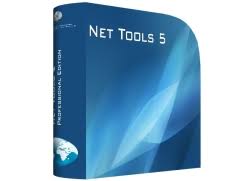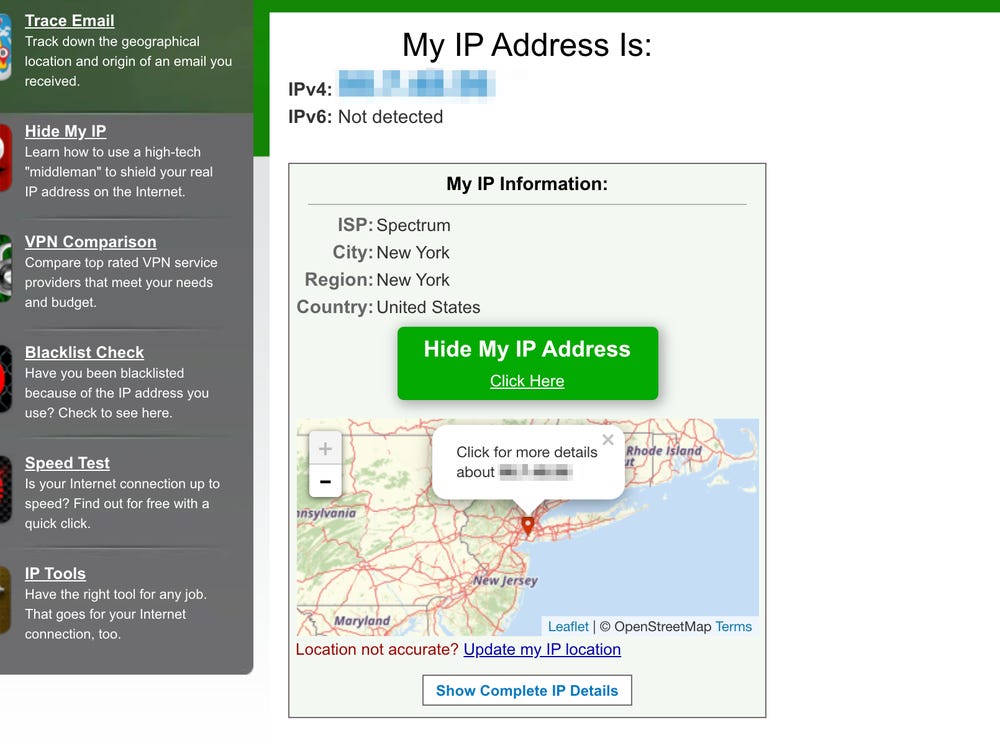
Hacking Ip Address
How a Hacker Might Exploit Your IP Address
A hacker is simply an online vandal, if you think about it. What do vandals do but damage things that don’t belong to them, for no good reason other than to do it. A hacker wants to worm his way into a network of his choosing to do serious (or not-so-serious) damage, such as stealing email addresses or your personal data.
Hacking is mostly focused on causing trouble for big companies and government agencies. But anything is fair game, and that’s why some junior hackers will stoop so low as to hack the IP addresses of our computers, just to mess things up for a bit.
Your network identifier: an IP address.
As you likely know, every computer that is connected to a network or the Internet has its own IP address. Everyone on the Internet has to have an IP address to send emails, look up information or buy online. It’s as simple as this: When you’re connected, you have an actively working IP address. And depending on where you are, your IP address can change.
A lot of Internet chatter that says our IP addresses can reveal our identities is not accurate. As experts have pointed out, if our IP addresses were truly the gateway to all of our personal and private information, then the entire Internet would be one big mess. But fortunately, our IP addresses alone do not make us easy targets.
Unfortunately, that doesn’t mean hackers will leave IP addresses alone. Remember—hackers simply like to mess things up, so they’ll still see what disruption they might be able to cause.
But just how would the hacker get into your computer anyway?
Ports: like doors to your home.
In the world of TCP/IP, the interface between the networks and your programs occurs through a system of electronic channels called ports. Each of these ports has a unique number that identifies it. So, in a sense, the ports are pipelines in the computer through which data can flow to and from a particular application and the network protocol software.
Each IP address has ports associated with it. Those ports are an important part of your computer system: Several programs (applications) might be running on the same computer, and the built-in network software on your computer needs to have a way of knowing what incoming packet of data is intended for what application. It needs to know, for example, how to send incoming emails to your email program.
That’s how that happens.
A building with rooms.
So we have IP addresses, ports and programs. Think of them as an address on your computer, a doorway into a room, and a room itself. With this picture in mind, look at your port as a back door that allows entry into your house…your computer. Completing the analogy, the room is a single application (program) you’re running.
If you’re connected to the Internet and running a program, a related port (identified by a number) will be open. That’s good for you, but it could allow someone who knows your IP address (an outsider, a hacker) access into your connection, with some ability to engage or affect the program you’re running.
Behind the door.
Fortunately, each room/program is somewhat self-contained and doesn’t have connecting doors to the other “rooms” in your computer. So, even if a hacker gets your IP address, sneaks into your port through the big back door and gets into your program, that’s as far as they can go.
Is there a way to block the door? Yes. That’s where a firewall comes into the picture. It essentially blocks intruder activity from getting through the ports.
Making your IP address invisible.
One way to keep hackers at bay is to hide your true IP address. One way to do this is to set up a personal Virtual Private Network (VPN). With a VPN, your online requests are routed through a vast network of computers, and you use a temporary VPN to communicate online. A hacker would not see your true IP address and wouldn’t be able to connect to your computer.
For more information, see our pages on hiding an IP address and Virtual Private Networks.
Related Articles
What is Hacking?
What is Malware?
Building a Better Password

Can hackers exploit your IP address? – BullGuard
An IP address is like a real-world address. It identifies a PC, a laptop, smartphone, or any other device on a network. If you want to download a movie, check out a web page, or do something else on the internet the request is sent out from your computer. This is received via a server which needs to know your IP address so the content can be delivered to you.
Knowing someone else’s IP is legitimate and essential for data routing around the Internet. Your computer already knows which IP addresses data is coming from but it doesn’t show it to you. And in most cases you can’t be harmed by someone knowing your IP address.
That said if it ends up in the wrong hands your PC can be scanned and your computer probed for vulnerabilities enabling someone to gain access to your data. At the same time unsecured smart devices such as alarm systems and baby monitors can be remotely hacked via the IP address.
For most hackers however it’s easier to gain access to a computer via malware rather than attacking an IP address.
That said:
An IP address can enable hackers to potentially block you from reaching a certain website, or post content like messages or comments. You may also be blocked or banned from playing online games on gaming devices and this actually happens frequently among gamers.
Hackers can also use a combination of your IP address and details from other sources to put together data about your identity.
Hackers may also perform a Distributed Denial of Service (DDoS) attack, flooding your network with data via the IP address and overloading the network to stop normal traffic from getting through. That said this is unlikely to happen given that DDoS attacks typically target large organisations.
However, in terms of privacy the Internet is wide open and for those with even rudimentary knowledge an IP address can be used as starting point to gather so much information on an individual it can be frightening. In reality you never really know whether someone is probing your IP address to gather information or not.
We’re not suggesting that you are being monitored, not at all, but by hiding your IP address from the outside world you are not only protecting yourself but shutting a door on snoopers and reclaiming your privacy.
VPN hides your IP address
BullGuard VPN (virtual private network) is designed to help you reclaim your privacy. It hides your IP address by allowing you to connect to the Internet from another location other than yours.
When using a VPN if anybody tries to identify your IP address they can only see the IP address of the server from which you are connecting to the Internet which could be in another country, your own country or on the other side of the world.
Alongside reclaiming your privacy BullGuard VPN also has other benefits:
It encrypts your data and creates a tunnel between your device and the online services you are accessing. This makes it indispensable when using a public W-Fi network which are notoriously insecure.
Ensures hackers can’t access your data and keeps you safe from man-in-the-middle attacks in which a hackers positions between your device and the server your data is going to in order to snoop on or steal data.
Provides the flexibility to safely and securely access the Internet and online services from home, work or abroad.
Doesn’t log what you’re doing online, or keep records of the websites you visit, ensuring you have complete online privacy and security.
Doesn’t log what you’re doing online, or keep records of the websites you visit, ensuring you have complete online privacy and security.

What can someone do with my IP address? – NordVPN
There are dangers to someone knowing your IP address, but they’re rarely discussed. Criminals can use your IP to launch various cyberattacks and scams against you and others. Before we begin, however, let’s start with finding out what your personal IP address is: What is my IP? By the end of this post, you’ll know what to protect yourself against and discover ways to hide your IP address. Pretty can someone find my IP address? Your IP address is a unique string of numbers assigned to you by your ISP – like a delivery address for online traffic. If you connect to a different Wi-Fi or move house, your IP address will change along with your ISPs use dynamic IP addresses, which aren’t fixed to your device, but you can have a static IP if you wish to (you can learn more about different types of IP addresses here). For example, if you want your computer IP address to always stay the same, you’ll be able to specify that through the device’s settings. This can be useful when port-forwarding, if you want certain data to be sent directly from your router to your computer IP your IP address holds certain information about you, someone may want to use it for malicious purposes. There plenty of ways people can get hold of your IP address. Here are just a few:If you torrent files. When you download content from torrent sites, every member of the swarm (total seeders and leechers) can see your IP address. All they need to do is check the list of borrowing your device. If somebody borrows or uses your computer, they can find out what your IP address is in seconds, as there are countless free websites that let you do an email. If you send an email to someone, they can check the header of the message, which could contain your IP address. Yahoo! and Microsoft Outlook are known to include IP addresses in the email icking on a link. Any link you click on will need to provide your iP address for the server at the other end to deliver the content provided by the link. Whoever owns that server will see your IP a VPN hide my IP address? Yes, it does. A VPN completely hides your IP address and encrypts your internet connection. Even better, a VPN prevents third parties like your ISP from eavesdropping on your data. Your online activity cannot be traced back to you, giving you a powerful layer of rdVPN has more than 5500 servers in 59 countries, providing you with the best speeds available. With one NordVPN account, you can protect up to six different devices: smartphones, tablets, laptops, and more. You can also install it on your router and secure gadgets that don’t support VPN functionality can jump from one server to another in seconds, changing your IP address and masking your location. Protect your online privacy out NordVPN on the latest cyber news and tipsWhat can people do with your IP? While your IP address won’t give away sensitive information like your phone number or apartment position, hackers can still use your IP against you. If a cybercriminal knows your IP address, the consequences can be devastating:Someone can get your location and intrude on your privacy in real lifeYour IP address shows what city you’re in, so if someone ill-intentioned finds it out, you could be in trouble. Let’s say you’ve announced that you’re going on holiday on your social media. A criminal only needs to do a little extra digging to find your house and burgle it while you’re meone can use your IP to hack your deviceThe internet uses ports as well as your IP address to connect. There are thousands of ports for every IP address, and a hacker who has your IP can try all of those ports to brute-force a connection, taking over your phone for example and stealing your a criminal does get access to your device, they could also install malware on it, which could expose your meone can impersonate you to get hold of your IP addressYour ISP could reveal your IP address to someone else. Criminals who know your name on social media can contact your ISP and try to impersonate you or use a vishing attack to steal your personal details. Remember that telecom operators are only humans who use systems with vast amounts of personally identifiable information. Employers can track your activityIPs are owned by ISPs, and each IP is assigned to a user. When you’re connected to your work network your employers could potentially see and track everything you do online – giving you hardly any privacy at all. A hacker can hit you with a DDoS attackIf a hacker has your IP address, they could harm you with a DDoS (Distributed Denial of Service) attack. A DDoS attack uses an army of computers controlled by a hacker to flood your device with traffic so it disconnects from the internet and completely shuts bercriminals can frame you for illegal activityHackers are known to use hacked IP addresses to download illegal content that threatens national security as well as anything else they don’t want traced back to them. Protect your IP address, and you will protect do I stop someone from using my IP address? You should always protect any personally identifiable information even if you think the risks do not apply to you. With enough determination, a bad actor can stitch together an entire identity just by going online, and your IP could be the starting are three ways to protect your IP address and prevent yourself from being exploited by hackers: Change your privacy settingsChange the settings on all your instant messaging as well as any other apps to “private” and don’t accept calls or messages from people you don’t know. Hackers are known to gain access to your IP address through messaging apps like Skype. Update your firewall and routerA criminal can hack your router remotely and retrieve your IP address, especially if you’re still using the default one. Change the password of your router regularly and be sure to use a long mix of upper and lower case letters, numbers, and special characters. Use a VPNA VPN will protect your IP address and your private information. By routing your online data through a VPN server with its own IP address, you can prevent websites from logging information about your device and location. While you might be principally interested in VPNs for their IP-switching functionality, they also come with a range of additional other benefits can a VPN offer? A VPN will establish an encrypted tunnel between your device and a VPN server. That means that no one can spy on your data as it moves from your device to the server — not even your internet service provider (ISP) has never been more valuable. Your ISP can monitor your activity and sell that information to advertisers and other third parties. Hackers can steal your passwords and use your private details to launch phishing attacks. It’s vital that you protect your rdVPN provides a number of extra features that you might find particularly useful. Our CyberSec system will enhance your protection against malware by shielding you from high-risk websites and other known threats. When Kill Switch is enabled, you can avoid any unexpected data exposure. And with the NordLynx protocol, you can enjoy unrivaled speeds, without compromising on out NordVPN on the latest cyber news and tips
Zen Bahar
Verified author
Zen likes to use her cybersecurity knowledge to help protect the privacy and freedom of others, otherwise, you can find her playing with paints in her studio in London.


